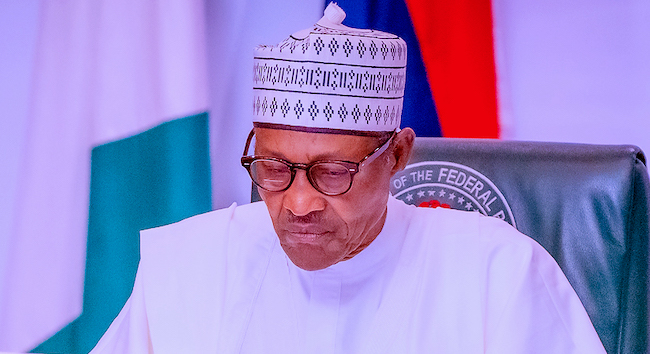Politics
SERAP, CJID slam lawsuit against Buhari over N5m fine on Channels TV

The Socio-Economic Rights and Accountability Project (SERAP) and Centre for Journalism Innovation and Development (CJID) have filed a lawsuit against President Muhammadu Buhari over a fine imposed on Channels Television.
The duo are asking the court to “declare arbitrary, illegal and unconstitutional the N5m fine imposed on Channels Television over a recent interview with the Labour Party vice-presidential candidate, Datti Baba-Ahmed.”
Joined in the suit as Defendants are the National Broadcasting Commission (NBC) and Mr Lai Mohammed, Minister of Information and Culture.
The NBC recently fined Channels Television N5 million over a controversial interview with Datti Baba-Ahmed, alleging that the interview was a breach of broadcasting code.
But in the suit numbered FHC/L/CS/616/2023 filed last week at the Federal High Court, Lagos, the plaintiffs are asking the court to determine “whether the NBC code used to impose a fine of N5m on Channels TV and the threat of ‘higher sanctions’ is not in inconsistent and incompatible with access to information and media freedom.”
The plaintiffs are asking the court for “a declaration that the NBC code used by the NBC to impose a fine of N5m on Channels TV and the threat of ‘higher sanctions’ is arbitrary, unconstitutional and unlawful, as it violates the rights to a fair hearing, freedom of expression, access to information and media freedom.”
Read also:SERAP warns outgoing gov to reject unlawful life pensions, others or face lawsuit
The plaintiffs are seeking “an order setting aside the N5m fine for being inconsistent and incompatible with section 22, 36 and 39 of the Nigerian Constitution 1999 [as amended], Article 9 of the African Charter on Human and Peoples’ Rights, and Article 19 of the International Covenant on Civil and Political Rights.”
The plaintiffs are also seeking “an order directing and compelling the NBC to reverse its arbitrary and unlawful decision to impose a fine of N5m on Channels TV forthwith.”
In the suit, the plaintiffs are arguing that: “the media has the task of distributing all varieties of information and opinion on matters of general interest and public interest.”
The plaintiffs said, “Imposing any fine whatsoever without due process of law is arbitrary and unconstitutional, as it contravenes the fundamental principles of nemo judex in causa sua which literally means one cannot be a judge in his own cause and audi alteram partem which means no one should be condemned unheard.”
The plaintiff’s said: “The NBC Act and Broadcasting Code cannot and should not be used in a manner that is inconsistent and incompatible with plurality of voices, diversity of voices, non-discrimination, just demands of a democratic society, and the public interest.
They described the fine as “arbitrary and unlawful”, adding that it “would have a disproportionate and chilling effect on the work of other broadcast stations and journalists and Nigerians
The suit filed on behalf of the plaintiffs by their lawyers Kolawole Oluwadare, Andrew Nwankwo, and Ms Blessing Ogwuche, read in part: “The grounds for imposing a fine of N5m on Channels TV fail to meet the requirements of legality, necessity, and proportionality.
“Broadcasting is a means of exercising freedom of expression. Any restrictions on freedom of expression must meet the requirements of legality, necessity, and proportionality.
“The regulation of broadcasting must aspire to promote and expand the scope of the right to freedom of expression, not restrict it.”
No date has been fixed for the hearing of the suit.
Join the conversation
Support Ripples Nigeria, hold up solutions journalism
Balanced, fearless journalism driven by data comes at huge financial costs.
As a media platform, we hold leadership accountable and will not trade the right to press freedom and free speech for a piece of cake.
If you like what we do, and are ready to uphold solutions journalism, kindly donate to the Ripples Nigeria cause.
Your support would help to ensure that citizens and institutions continue to have free access to credible and reliable information for societal development.
























